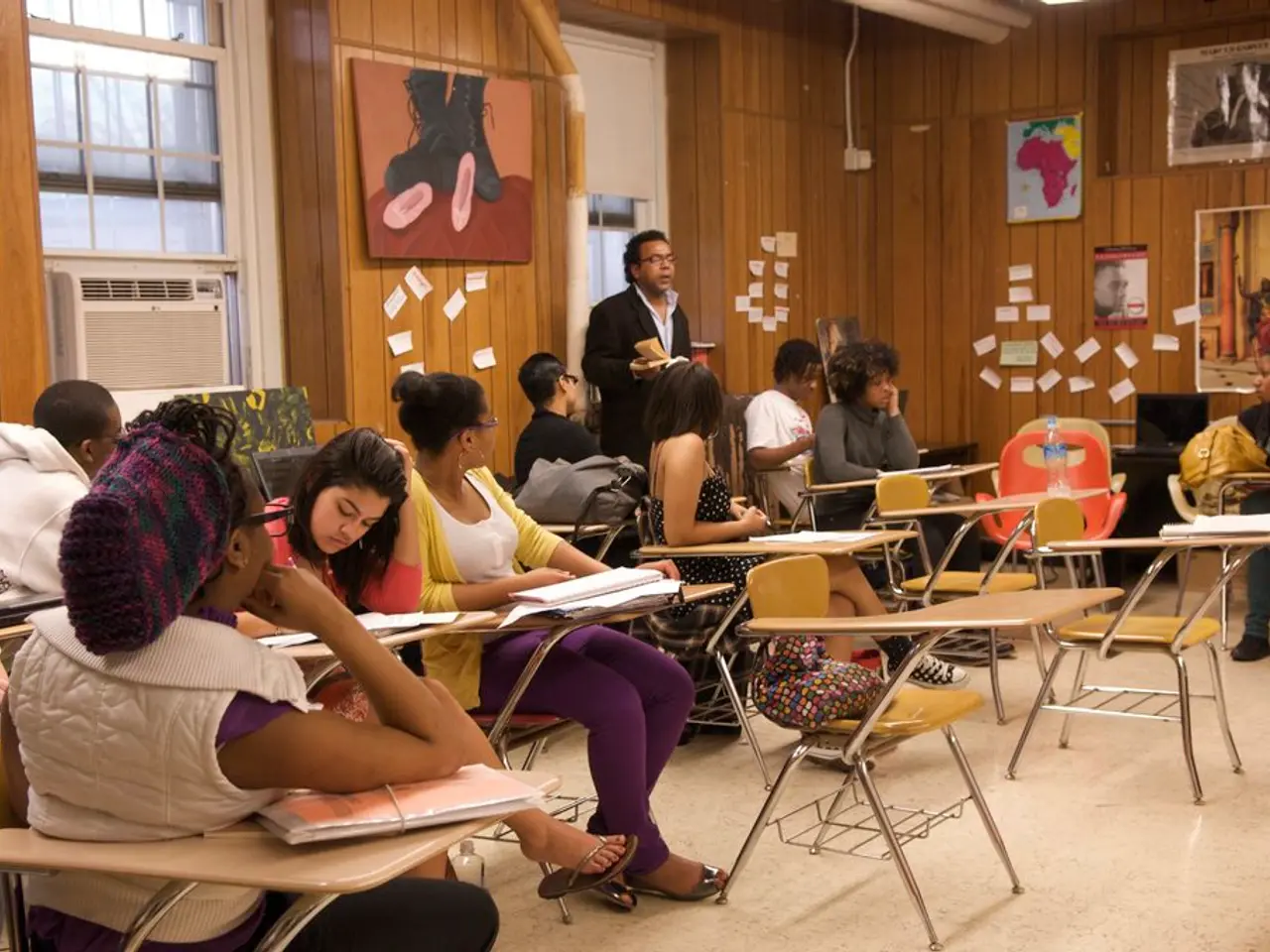Learning Method Comparison: Experiential Learning vs Conventional Evaluations Challenging Classic Paradigms
In the realm of education, a significant change is underway, as traditional assessment methods are being challenged by a more dynamic and holistic approach: experiential learning.
Traditional assessments, relying on standardised formats like multiple-choice tests, essays, quizzes, and final examinations, primarily test students' ability to store and retrieve specific information under timed conditions. However, these methods limit evaluation to memorisation and recall within specific subjects, ignoring creative expression, collaborative abilities, practical application skills, emotional regulation, and interpersonal communication.
Experiential learning, on the other hand, offers a more comprehensive approach. It emphasises an active learning cycle that includes experiencing, reflecting, conceptualising, and experimenting. This approach encourages students to apply theoretical knowledge in authentic and complex situations, fostering continuous learning beyond specific subjects.
Experiential learning positively impacts student success assessment by promoting deeper understanding, critical thinking, and transferable skills in real-life contexts. Research has shown that students involved in experiential learning often outperform peers on standardised achievement tests, particularly in complex subjects like biology.
Team-based projects in experiential learning require students to collaborate on complex challenges, evaluating communication abilities, leadership potential, and group success. This approach develops holistic skills like critical thinking, communication, emotional intelligence, leadership, teamwork, and adaptability.
In contrast, traditional standardised tests focus largely on assessing content knowledge and test-taking skills, with limited scope in evaluating deeper skills such as creativity, problem-solving, and practical application. While standardised tests correlate with college and career success, they do not fully capture the breadth of competencies learners develop through experiential learning.
The most effective educational environments often blend both experiential and traditional assessment approaches strategically. This combination provides a balanced evaluation of students' academic knowledge and their ability to apply that knowledge in practical, real-world scenarios.
Experiential learning transforms students from passive observers into active contributors who shape their own educational journey. In traditional testing formats, students remain passive recipients who respond to predetermined questions.
Moreover, experiential learning assessment methods, such as portfolios, project presentations, peer collaborations, and self-assessments, offer ongoing assessment throughout the learning process. This approach provides constant feedback and guidance, promoting continuous learning and improvement.
In conclusion, the shift towards experiential learning represents a significant change in educational assessment. By focusing on process over product, experiential learning allows for observation of students' thought processes and adaptability. This approach bridges the gap between classroom concepts and real-world challenges, making it a powerful complement or alternative to traditional standardised testing frameworks. Experiential learning fosters skills crucial for lifelong learning and adaptability in a changing world, which standardised tests may overlook.
References: [1] Kolb, D. A. (1984). Experiential learning: Experience as the source of learning and development. Pearson Education. [2] Zimmerman, B. J., & Schunk, D. H. (2011). Self-regulated learning and academic achievement: A meta-analysis of longitudinal studies. Journal of Educational Psychology, 103(3), 544–560. [3] Smith, M. K., & Ragan, T. V. (2015). The impact of experiential learning on student performance: A meta-analysis. Journal of Experiential Education, 37(3), 245–265.
E-learning platforms, focused on education-and-self-development and personal-growth, increasingly incorporate experiential learning to better evaluate students' learning outcomes beyond mere memorisation. This approach encourages active engagement, critical thinking, and practical application of knowledge, which are essential for personal-growth and lifelong learning.
The blended use of experiential and traditional assessment methods in e-learning environments offers a more holistic evaluation of learners' skills, encompassing both academic knowledge and real-world application capabilities, promoting both learning and personal-growth.




